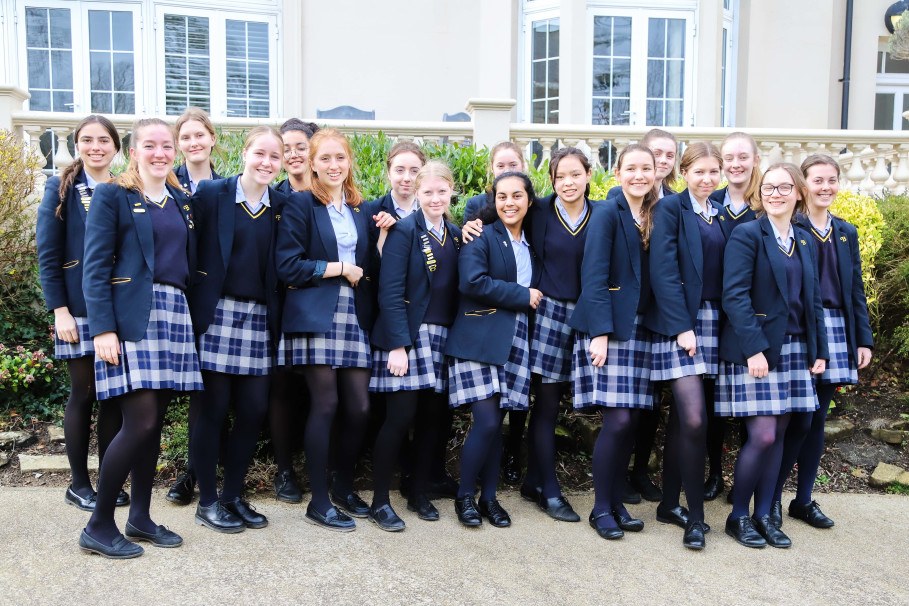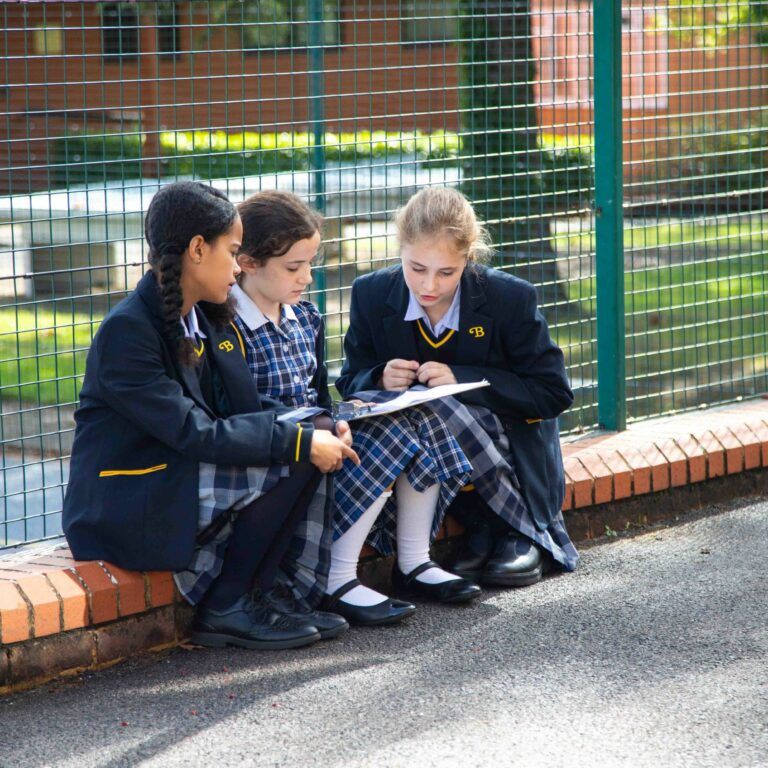Burgess Hill Girls is celebrating an exceptional set of results in the Higher Project Qualification, with 79% of students achieving A*/A grades.

The Higher Project Qualification (HPQ) requires students to carry out independent research on a topic that they have chosen that is not covered by their other GCSE subjects. They then use this research to produce a written report and, in the case of practical projects, an artefact or a production. A student can take inspiration from something studied in class or something completely unrelated to their studies.
Burgess Hill Girls Year 11s conducted investigations in search of answers to a range of fascinating questions: How many genders are there? Should CRISPR technology be developed and used to genetically modify human embryos? Should international veganism be introduced in the interest of our planet? Is diet and exercise a greater influence on mental health than medicine? What is the optimum age to sign a DNR? Is Terraforming Mars an achievable aim? Are prisons and schools similar institutions? Do bilinguals get more opportunities in the workplace?
The HPQ encourages students to extend and develop beyond the material being covered in class and explore their passion for a subject. Through it, students discover the joys of independent learning, take responsibility for their own study and develop new life and study skills. The project is available to all students of all ability ranges and is designed to push them beyond the requirements of their mainstream subjects and give them a focused structure in which to deepen their knowledge in a particular field.
“In a future defined by an accelerating pace of change in so many areas of human activity, critical thinking and problem-solving skills are essential. The Higher Project Qualification encourages students to extend and develop beyond the material covered in class and ask more complex and difficult questions of the world around them,” said Rohaise Flint, Assistant Head Academic. “Producing these projects independently offers greater freedom and flexibility in learning, leading to these fantastic results of which the girls should be extremely proud.”


